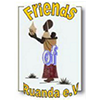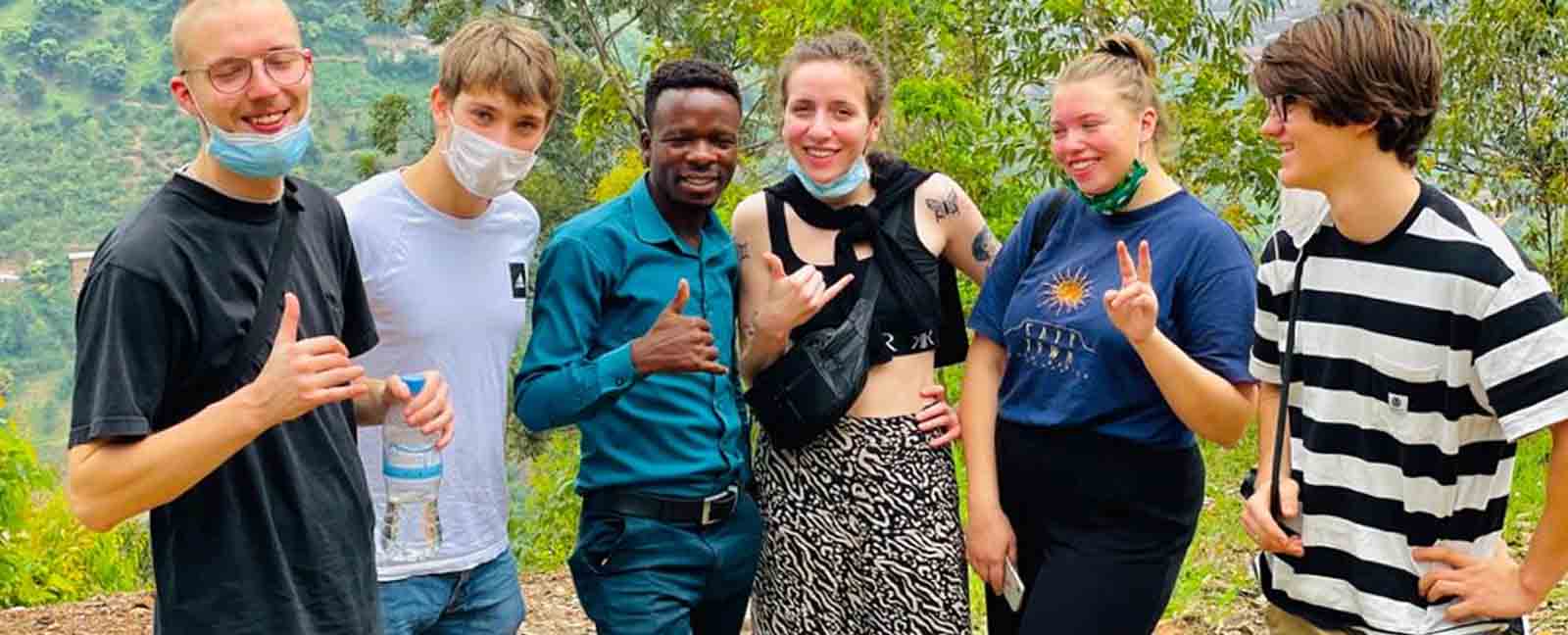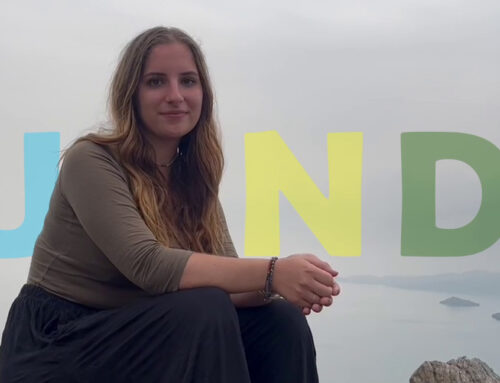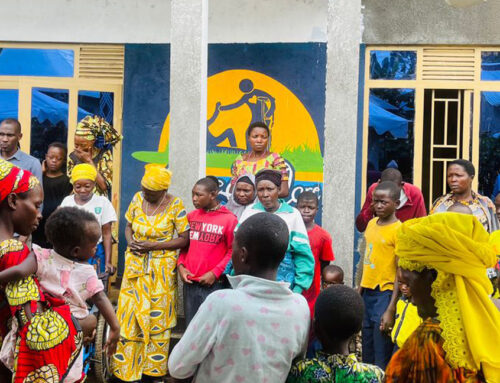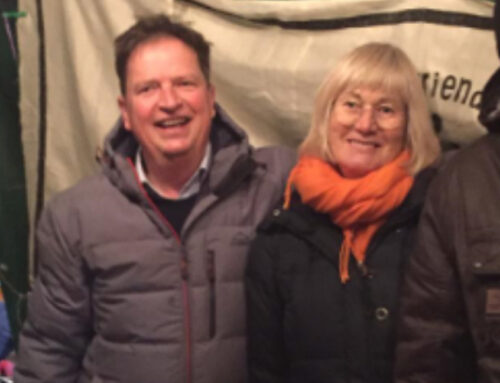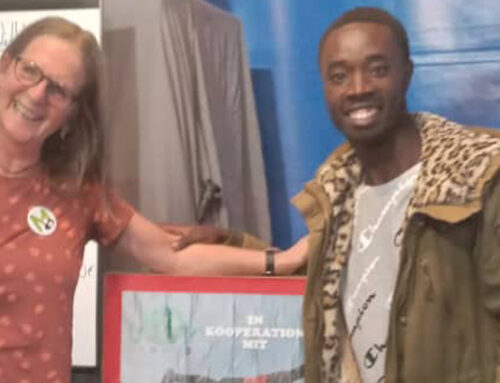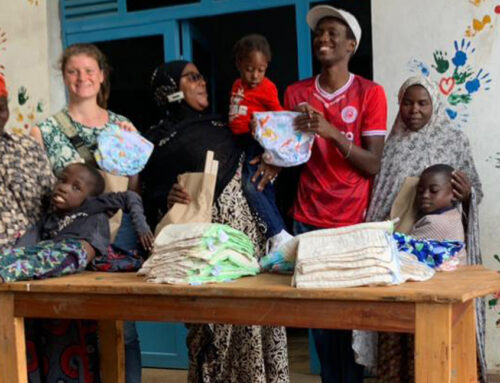The following interview was published on the weltwaerts.de website on 30.12.2020:
The Friends of Rwanda association has resumed sending volunteers to Rwanda. Five volunteers left for Rwanda on December 9, 2020. They will spend a year there supporting various projects. They tell us in advance what they are most looking forward to, what their concerns are and how friends and family have reacted to their planned departure. Michael Liebler, deputy chairman of the Friends of Rwanda association, also reports on what prompted the association to leave the country in 2020 and what measures were taken in advance.
What prompted you to make this decision? What steps did you take before you made this decision?
Michael Liebler: The assignment of volunteers was very uncertain throughout the year and depended on a number of criteria that we had to keep a constant eye on. As we at Friends of Rwanda are deeply convinced of the value of this development learning service, we critically examined the conditions and submitted the results to Engagement Global for cross-checking. It was helpful that we are very well networked at the place of assignment and therefore always had first-hand information about the current situation. In addition, some of our former volunteers traveled to Rwanda from August on their own initiative and were able to inform us in detail about the entry conditions as well as the situation with the partners. The exchange with the new volunteers was also more intensive than usual in this situation. A lot of additional information had to be passed on. It was good that Friends of Rwanda was able to hold three preparatory face-to-face seminars. The resulting overall picture gave us the certainty that a deployment is currently possible and sensible.
Unfortunately, a large part of the population has come under severe economic hardship due to the Covid-19 measures. It is also a small ray of hope for our partners that weltwärts volunteers will be arriving again.
What is the situation in Rwanda in relation to corona?
Michael Liebler: The Rwandan government has taken very restrictive measures to contain the Covid-19 pandemic and has enforced these measures rigorously. The number of cases is correspondingly low, even though there is a lot of testing by African standards. As a result, the Federal Foreign Office still does not classify Rwanda as a Covid-19 risk area. In the meantime, the strictest measures, such as travel restrictions within Rwanda, the closure of schools and universities and an almost total curfew, have been lifted. Unfortunately, a large part of the population has come under severe economic hardship as a result of the Covid-19 measures. It is also a small ray of hope for our partners that weltwärts volunteers will be arriving again.
What measures have you taken to make sending volunteers safe, both for the volunteers themselves and for the local people?
Michael Liebler: We first had the hygiene concept explained to us and then provided our partners with financial assistance to equip them with face masks and disinfectants. As the volunteers themselves have to undergo two Covid-19 tests before and during their actual entry, it is practically impossible for them to bring Covid-19 with them to Rwanda.
Five volunteers go weltwärts with Friends of Rwanda
How did the volunteers feel when they started their weltwärts volunteer service? What are their worries and what are they particularly looking forward to? How did those around them react to their plans? A few days before their departure on December 9, 2020, Deborah, Leonie, David, Lucas and Sebastian shared their thoughts on their volunteer service in Rwanda.
Deborah Sieger completed her Bachelor’s degree in Social Work in 2019 and will be supporting the women’s cooperative Iya Mbere Mwana in Rwanda.
Deborah Sieger (26 years old): I have no concerns about falling ill. The risks in Rwanda are much lower than here in Germany. However, the measures to prevent the disease in Rwanda are also much stricter than in Germany. Masks are compulsory in all public places, the country’s borders are closed for entry and exit and there is a curfew from 10 pm to 6 am. My only concern is that this makes it a little more difficult to get to know the culture and the people. Nevertheless, I think that we will get a deep insight into the country and its people and that friendships can develop despite the pandemic. Incidentally, my family and friends are all enthusiastic about my plans and support me wherever they can. They are only worried that they might not be able to visit me during my voluntary service in Rwanda because of the pandemic.
I was met with a lot of astonishment and although there are many concerns, everyone is all the more pleased that the voluntary service will work out after all.
Leonie Husar has completed her A-levels and is working on a project together with Deborah.
Leonie Husar: […] I am very grateful that “Friends of Rwanda” gives us the chance to gain experience abroad despite Corona. The reactions of friends and family have shown me that the pandemic has caused even more concern about my trip. In addition, few assumed that my assignment would take place despite the circumstances. I have been met with a lot of surprise and although there are many concerns, everyone is all the more pleased that the voluntary service will work out after all.
David Eckle graduated from high school in 2020 and will be working in the Soul of Rwanda street children project.
David Eckle: Of course, political unrest can quickly arise in a country like Rwanda, and the coronavirus pandemic has exacerbated this risk. In the end, however, curiosity and a thirst for adventure triumph over worry.
Together with Sebastian Bolle, Lucas Grunert will support the teaching staff at a college with lessons and afternoon supervision.
Lucas Grunert: I’m not worried about the Covid-19 virus in Rwanda, as there are currently only 5,500 infected people. I’m more worried about the strict rules to contain the corona pandemic, as there is a curfew from 10 p.m. to 5 a.m., making it difficult to meet new people in a bar in the evening, for example. Wearing a mask all the time also makes it difficult to read facial expressions in a new country with a culture that is – for me – foreign. Of course, these points are understandable and also absolutely necessary, so they are just a minor flaw rather than a fear.
However, I believe that as the only volunteers this year, we have a special responsibility. In addition, volunteer projects are particularly useful in a crisis.
Sebastian Bolle: The pandemic worries me very little, as the school had to present a detailed hygiene concept at the start of the school year and Rwanda has coped with the pandemic in an exemplary manner so far. However, I believe that we have a special responsibility as the only volunteers this year, and volunteer projects are particularly useful in a crisis. Most of the people around me no longer believed that I would be able to leave the country, but I don’t know anyone who has changed their mind about my voluntary service because of coronavirus. Personally, I am happy that I can leave the country and that I can exchange ideas with people from other cultures despite corona.
